The Only Decision To Make
It remains unforgettable: Roberto Duran, arguably the greatest boxer, pound-for-pound, on the planet, stops fighting, turns his back on his opponent, and tells the referee: “No mas.” Sugar Ray Leonard had made the great “Hands of Stone” quit. It was unthinkable, a shock to the entire sports world. Duran was the ultimate hardman, a legend, a fighting and punching behemoth. Yet his career is forever stained by the impulsive decision to walk away from the superior silk of Sugar Ray on that fateful night in New Orleans.
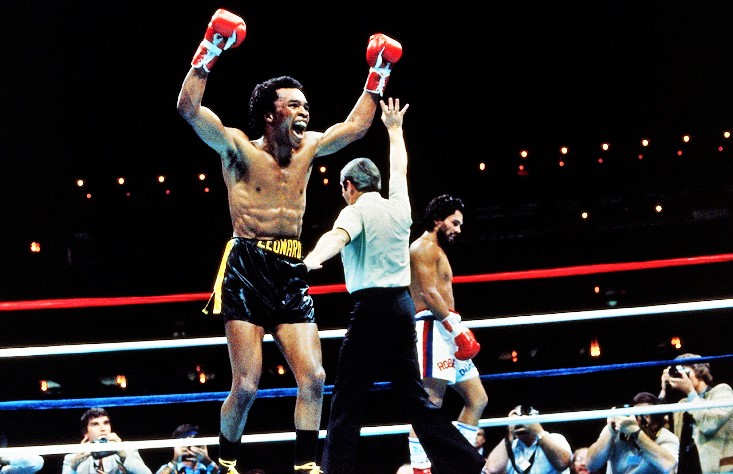
To quit remains the cardinal sin in boxing. At the elite level, the expectation is that a professional prizefighter possess an almost psychotic will to never stop fighting, to never give up. Personal health and well-being is secondary to fighting pride. You’ve heard it all before: a true champion is a warrior, a gladiator, who goes out on his shield; the standard tropes. But we are no longer in the coliseum. Four decades after the Duran debacle, Daniel Dubois’ decision to take a knee for a full count in his high stakes showdown against Joe Joyce offers a new twist on the “No Mas” debate.
Whatever you do, do not quit; that is the motto of our times, at least for some. But what, precisely, does the word “quit” mean? The reductionist agenda is a silent force that stains our society and our culture, reducing complex elements and problems to simplistic explanations. It’s why millions own Facebook accounts but only a handful have read Spinoza or Dostoevsky.
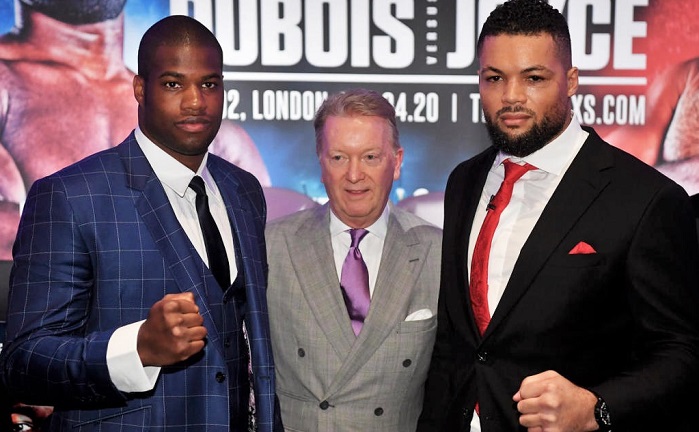
And it’s why so many reduced the decision made by Daniel Dubois to the most simplistic of terms: he quit. More than that, say the trolls, this shows he lacks the grit to be a real fighter, to ever be a champion. But never forget, more often than not, such reductive, if not childish, sentiments are uttered by people who have never stepped through the ropes themselves, never taken a punch.
Former middleweight titlist Andy Lee countered the rush of negative comments with an apt observation: “When an MMA fighter taps,” he observed, “nobody calls him a quitter and questions whether they should ever fight again.” Lee added that in his opinion Daniel should have been spared having to make the decision to withdraw, that his corner could have intervened and saved their man from further punishment and the public shame of surrender, shame in this context meaning having your character and mindset judged and questioned, over and over.
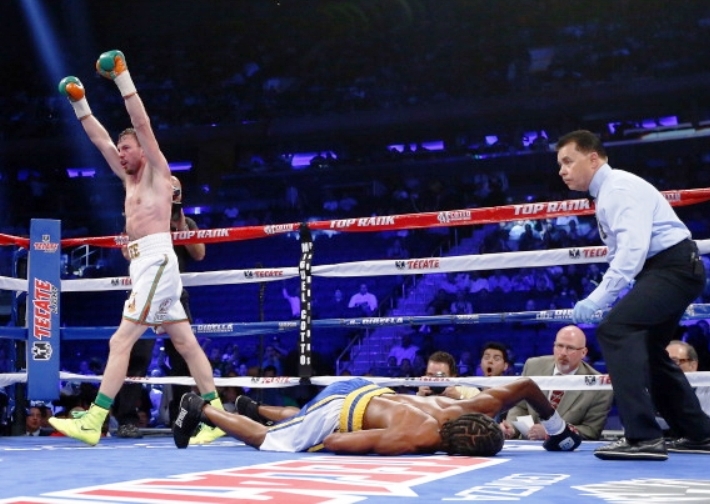
David Haye countered Lee’s comment skilfully, asking Andy if he would have been happy if his corner had stopped one of his fights, especially when he was winning and when a world title shot and big money was on the line. Lee could not respond. But when Andy was getting knocked down and battered all over the ring by John Jackson in 2014, his corner gave him the time and the chance to produce one of the punches of the decade. We can blame the Dubois corner if we wish, but let’s be honest: of course they would have full faith in their charge’s power and ability to end the fight with a single, deciding blow. Throwing in the towel when their man was still able to compete would have been unthinkable.
But the true merit of this debate is that it reveals the fundamental truth which underpins the sport of boxing. We see it now, in the time of covid-19, more vividly than ever, without the white noise of a crowd muffling the gasps and groans and heavy breathing of the combatants, or the smacking and thudding of leather gloves on human flesh. The sheer brutality of professional boxing has the power to shock, in its risks, in its violence, and in the will and guts required to take punishment and keep fighting back.
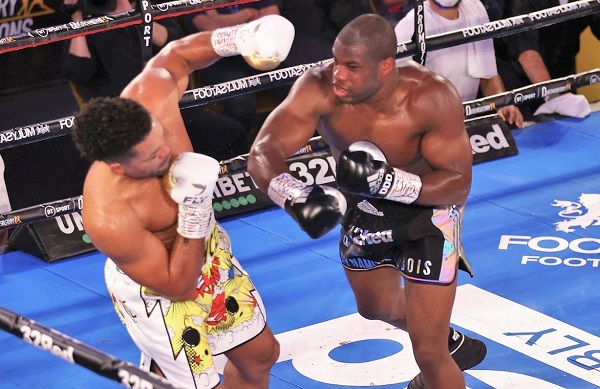
It is a cliché worth repeating: everybody who gets into the ring deserves the utmost respect. It is an endeavour the vast majority have never attempted, and thus can never fully understand. And yet so many feel qualified to judge and criticize the people risking their lives for the sake of public entertainment. We live in a world where people with no experience of violence offer tough guy versions of themselves on social media, knowing full well they will never be tested, never have to face real scrutiny.
That said, one of the more notable Dubois critics was in fact a former champion, Tony Bellew, who loudly questioned if Dubois is genuine championship material after he took a knee to end his battle with Joe Joyce. The implication of Bellew’s criticism was obvious: Dubois cannot handle the inevitable adversity that must be faced when a fighter steps up in class. Bellew claimed it “would take a baseball bat” to cause him to give up.
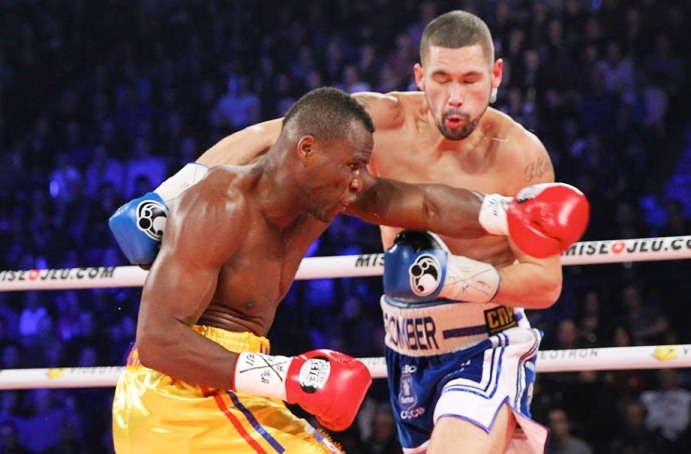
Really? Well let’s look back to what happened when Bellew challenged Adonis Stevenson in 2013, when he got outboxed, bullied, and battered before being saved by the referee. And to my eye Bellew did in fact stop fighting back as the Adonis onslaught rained down upon him, with nary a baseball bat in sight.
But more to the point, in the aftermath of that contest in Montreal, the overall consensus in the boxing world was that Bellew was not quite good enough for world level. And yet he returned to surprise his detractors by capturing a cruiserweight world title, and then upsetting an ageing David Haye, before wrapping up a successful career with a spirited display against cruiserweight king Oleksandr Usyk. The point is Bellew was given an opportunity to rebuild his career and prove his critics wrong. Does Dubois not deserve the same?
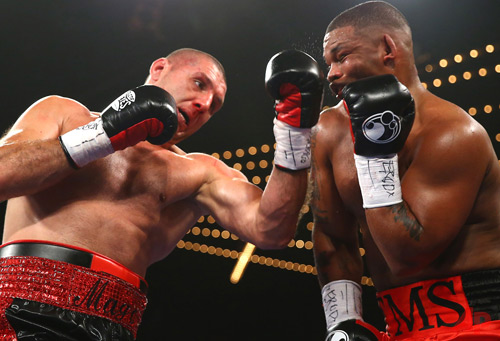
More to the point, how can anyone criticize a fighter for electing to safeguard his health? When every single year, boxers suffer career-ending injuries, or worse? For example, what about Eduard Gutknecht? A warrior spirit and inept cornermen have left him permanently damaged after absorbing the heavy artillery of George Groves in 2016. If he had taken a knee, would Bellew have written him off too? What about Magomed Abdusalamov? If he had taken a knee that night against Mike Perez, would he have faced the wrath of “Bomber Bellew”? Or, to take things full circle, what about Adonis Stevenson, who is lucky to be alive after his knockout loss to Oleksandr Gvozdyk in 2018? Had he taken a knee and avoided the last few rattling shots that put him in the hospital and an induced coma, how could anyone have faulted him?
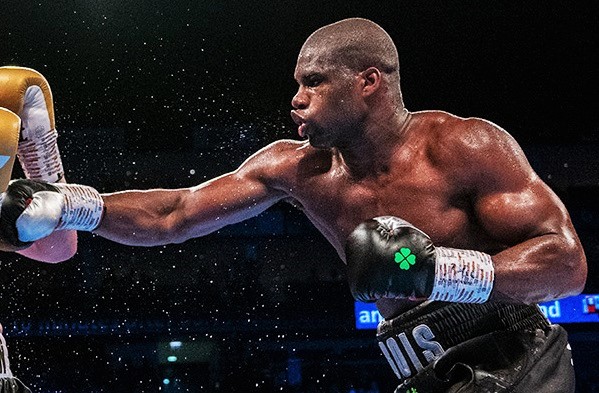
Daniel Dubois is just 23-years-old. Rather than write him off, people like Bellew need to recognize that the young fighter can learn from defeat and rebound. Just as Bellew did. Bottom line: Dubois did the right thing. Taking a decision to save your eyesight and protect your long-term health is the only decision to make. It shows intelligence and strength, not weakness. Let Dubois regroup and re-engage. Let us see if the young man can overcome this setback.
In my opinion, the first thing Dubois should do is contact Wladimir Klitschko or Lennox Lewis for some solid advice. Both men overcame early career defeats to not only win huge fights but have Hall of Fame careers. How did they do it? They avoided brawls and utilized their boxing talent, taking a more cerebral approach to the fight game. The result was multiple world title belts, bulging bank accounts, and healthy brains in retirement. Tony Bellew’s empty bravado about baseball bats belongs on childish call-out videos, or in a dimly lit alley at midnight, not in boxing. Forget the naysayers and get it straight: Dubois can come again. People bounce back from adversity all the time. Professional boxers are more capable than most of doing just that. — Gary Elbert

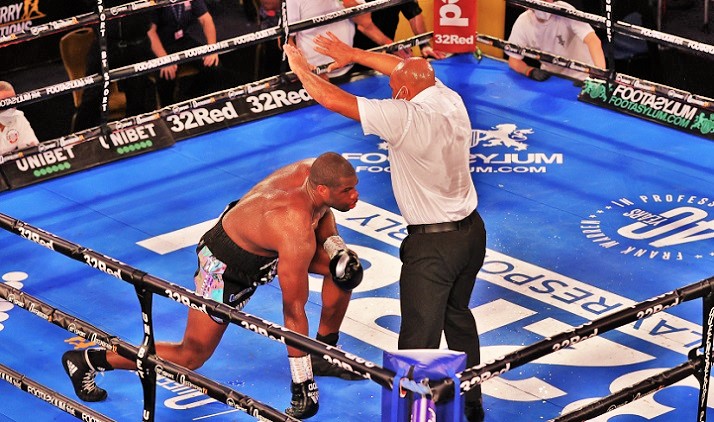

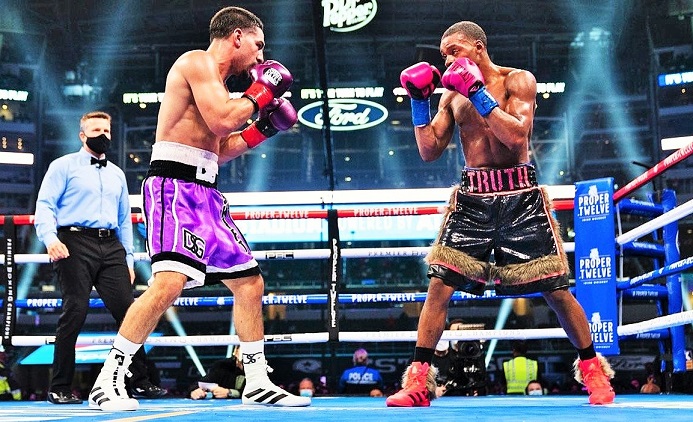

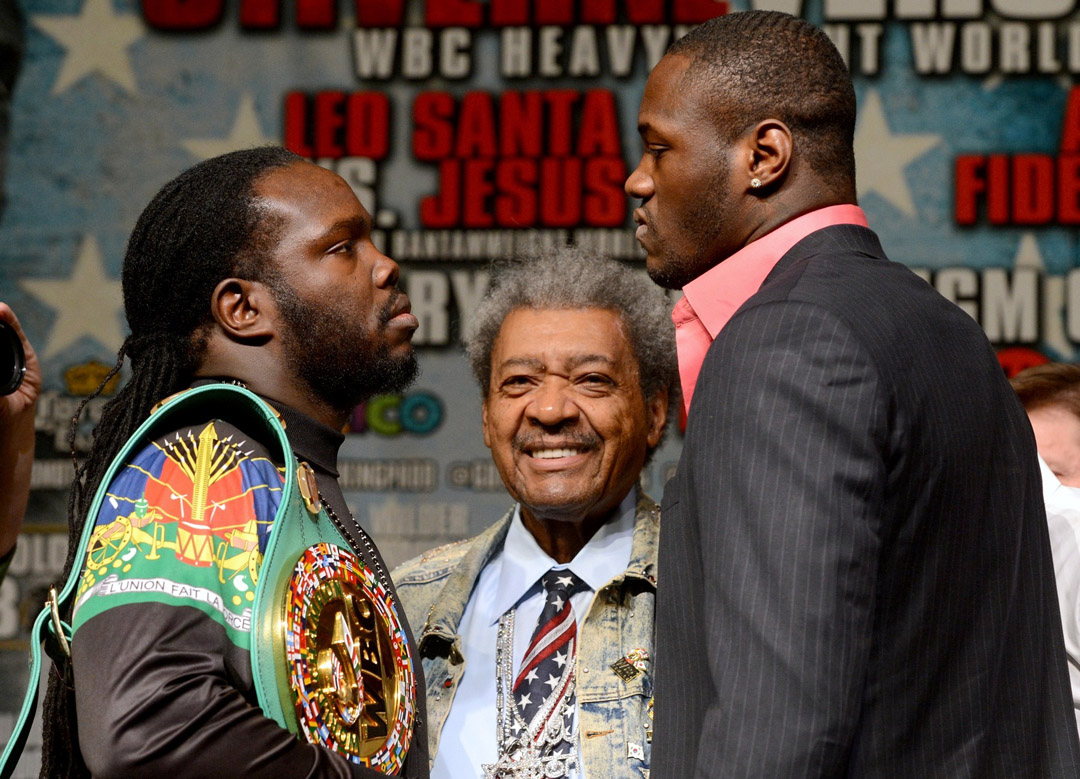
I fully agree with you, Gary. Very well exposed.